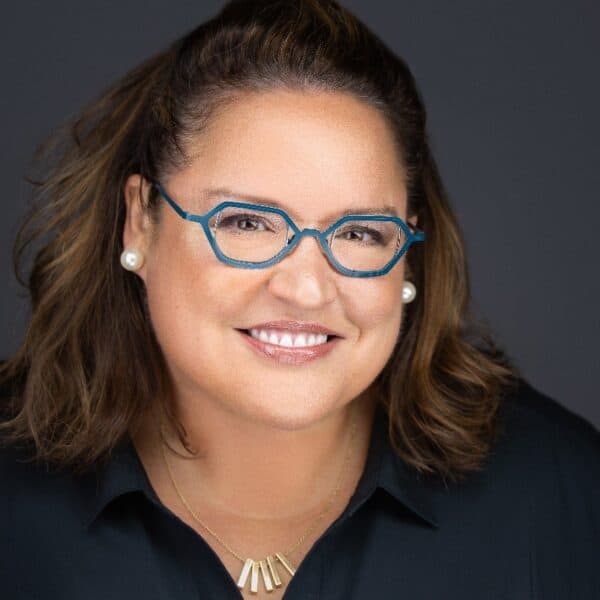
Find divorce financial planners nearby and online who can offer advice to help you navigate the financial and emotional tolls of divorce.
A divorce can be one of the most stressful times in your life. Hiring a financial planner who specializes in serving clients going through a divorce can help you get through this difficult time with as little stress as possible.
Before hiring a divorce financial planner, it’s important to first consider your own financial planning priorities. In this guide, you’ll learn 12 important things you need to do when preparing for a divorce. Then, read our tips to help you get started in your search for a divorce financial planner, and view our directory to find divorce planners near you and others who can meet with you online.
Table of contents
Find Divorce Financial Planners Near You
📍 Click on a pin in the map view below for a preview of divorce financial planners near you who can help you navigate the divorce process with a personalized plan. Or choose the grid view to search our directory of financial planners with additional filtering options.
📍Double-click or pinch pins to view more.
12 Important Things You Need to Do When Preparing for a Divorce
Planning ahead for the inevitable can help you get through this difficult time with as little stress as possible. It’s important to protect yourself and your family throughout this process by taking the right steps at the right time. Here are 12 important things you need to do when preparing for divorce:
1. Consult with a divorce attorney
It’s important to interview several attorneys before you make your final decision. The best way to find a good divorce attorney is through referrals from others who have gone through the divorce process themselves or with the help of an experienced family law attorney.
A divorce financial planner can also provide you with a list of experienced attorneys to consider. And consider consulting your local bar association’s “family law section,” where they can refer you to attorneys who specialize in family law matters.
2. Get your financial documents in order
This is one of the most important things you have to do before filing for divorce. Make sure that you have all of your financial documents together so they can be easily accessed by your attorney, accountant, and financial planner. You should have copies of all credit card statements, bank statements, and other records related to your income and expenses.
It’s also a good idea to have copies of any tax returns filed jointly with your spouse, as well as any joint bank accounts or investments held jointly with them. A divorce financial planner can answer your questions about the documents to gather and help you get your financial documents organized.
3. Create a budget
It is very important to create a budget that includes your current income and expenses. This will help you determine how much money you will need to pay bills, save for emergencies, or put toward child support or alimony. You should also consider any other costs associated with separating from your spouse (such as hiring an attorney).
After creating this initial budget, use it as a guide throughout the divorce process and share it with your financial planner — making adjustments as needed based on new information about assets and debts that arise during negotiations or litigation. Focus on the most important things, and cut back on those that are less important.
Track spending so that there’s no guesswork about where money has gone during the divorce process (and so you can prepare for any surprises down the road). And continue saving for retirement after getting divorced just like before — especially if it means being able to afford long-term care later in life.
4. Create a record of all assets
When you’re getting ready to file for divorce, it’s important to create a list of all the assets that you and your spouse have accumulated during your marriage. This list will include real estate, vehicles, investments, and any collectibles. It’s also important to document the value of each asset so that you know how much is available to split between both parties in case there’s an ongoing dispute over how much should be awarded.
If there are any high-value assets (anything over $50,000), consider taking pictures of them or otherwise documenting their location so that they don’t get lost or damaged during the divorce process. Keeping track of this information is crucial because it helps ensure transparency throughout the legal proceedings so everyone involved knows what they can expect when dividing up the property after filing for divorce.
Many divorce financial planners can provide a template or online tool you can use to track your assets.
5. Separate your finances
Your money matters during and after a divorce, so it’s important to separate your finances as soon as possible. If you have any joint bank accounts, consider closing them down and opening new ones with just one name on each account. It’s also wise to get individual credit cards if you can since joint credit cards will still be linked after you separate — even if they’re not used anymore — which could hurt your credit score later on if used improperly after the divorce is finalized.
If you cannot close these types of accounts yourself — for example, if your spouse refuses or ignores requests for them to be closed — you may need to consult an attorney who specializes in family law for advice about how best to proceed with closing the accounts before proceeding with filing for divorce.
6. Update your insurance
A lot of insurance policies include an option for “family coverage,” which means that all family members are covered under one policy. If you have health insurance, auto insurance, or homeowner’s insurance, it’s important to update your information so that nothing changes when you split up with your spouse. A divorce financial planner can help you evaluate your insurance options before and after your divorce.
Related Articles on Wealthtender
7. Update your will and powers of attorney
If you have children, you’ll probably want to update your will and powers of attorney so that someone else can take care of them if something happens to both parents. If no minor children are involved in the divorce, this step may not be necessary for everyone involved. However, it’s best not to leave anything up in the air regarding your children’s future welfare and your estate plan. Divorce financial planners often work closely with estate planning attorneys to help coordinate updates to these important documents.
8. Don’t move out of the marital home
It’s easy to want to move out of the marital home once you’ve filed for divorce, but that can be a mistake. Moving out may affect your custody arrangements or property settlement, which could result in you getting less than you would have otherwise. Also, if one parent moves out during the separation period and gets remarried, it may make it more difficult to claim the house as their primary residence.
For example, f you leave with your child or children before your divorce is final, they may become more attached to their new environment than where they were previously. This could affect child custody decisions if there is any dispute over who should care for them after the divorce is completed.
If a family court judge decides that one spouse will get half of all assets accumulated during marriage (including property), leaving before everything has been divided up might mean losing some of what’s rightfully yours because it was purchased after separating from your spouse (and thus not yet considered community property).
9. Update beneficiaries on life insurance and retirement accounts
You need to update your beneficiaries on life insurance and retirement accounts. Many people wait until their divorce is final, but it’s best to make these changes sooner rather than later. If you pass away before your divorce is finalized, your current spouse will receive the benefits no matter what.
It’s also important to note that if you’re named as a beneficiary for someone else’s account (like your child or grandchild), and they are included as a beneficiary in yours, their funds will be available when they turn 18 or 21 — even if you die before that happens. Consult with a divorce financial planner who can offer guidance on how best to proceed.
10. Make copies of every document related to your divorce
You should make copies of every document related to your divorce, including emails and text messages. It’s important to have a record of all correspondence between you and your soon-to-be ex. This will help you prepare for court, but it can also prove helpful if any disputes or misunderstandings arise later. You don’t want to be caught off guard during a stressful time — make sure you have everything documented so that nothing slips through the cracks.
11. Be careful about how you act around the children
As much as you can, keep the divorce away from your children. They do not need to know about the problems in your marriage or how you feel about each other. You also should not talk negatively about each other in front of them, even if it’s just a joke between friends and family members. It’s important to remember that children want their parents to get along and work out their problems so they can live together peacefully again.
Be careful when talking with them about issues related to divorce because they may misunderstand what is being said, or they may worry that things are going badly between mom and dad if one parent tells them something bad happened at home. And as much as possible, avoid using the kids as messengers between you and your spouse during a heated argument or conversation about separating from one another.
12. Consider consulting a therapist or counselor
Divorce can be an emotionally draining process. While you may not think it’s possible, it’s sometimes helpful to talk through your thoughts and feelings with someone who isn’t involved in the situation. While many divorce financial planners play a dual role of helping their clients navigate the emotional side of divorce, a professional therapist or counselor can help you work through negative emotions like anger, resentment, and depression — and these sessions could also help with any other mental health issues that might arise during this period of your life.
How Much Does a Financial Planner Cost?
➡️ How Much Does a Financial Planner Cost? Read the Article
Is a Divorce Financial Planner Right for You?
Divorce is hard. But if you approach your divorce responsibly, with a plan and an understanding of what needs to happen, it can be less painful than it otherwise would be. An experienced divorce attorney and a divorce financial planner can offer the support you need to make the process considerably less stressful.
You don’t have to drag out your divorce or make it any more stressful than necessary by fighting over small things — just remember that bigger issues are at stake than who gets which piece of furniture or whose name goes first on the bank account.
Smart Tips to Find a Divorce Financial Planner
Before hiring a divorce financial planner, here are a few quick tips to help you find the best advisor for you.
1. Decide Which Services You Need
Before hiring a divorce financial planner, determine what services you need from them. Whether it’s full-service investment management or a plan focused on a specific area of your finances, put together a list of what you’d like help with before contacting an advisor.
Though most people use a financial planner simply to invest for retirement, this is only a small part of what many advisors offer. Here’s a quick rundown of potential services a financial planner may offer you:
- Budgeting and money management
- Debt management
- Insurance planning
- Retirement planning
- Other investment planning
- Inheritance planning
- Estate planning
- Tax planning
As you can see, financial advisors can help you with your entire financial picture, not just investing. As you start to plan for life’s bigger milestones, you should consider finding a financial advisor that specializes in those areas.
Finding the right advisor can help you minimize risk, maximize gains and take advantage of tax breaks while investing for your future. They can also help you protect your assets with the right kinds of insurance and help you pass on your financial legacy with a proper estate plan.
2. Consider Your Budget and Payment Preferences
Once you have a list of services you would like, review the fee structures financial advisors offer. Finding a balance between the services you need and the cost of those services will help narrow down the field of advisors you may want to work with.
If you are looking for a full-service advisor to manage all of your investments, consider searching among fee-based financial advisors. If you want to manage your money yourself, consider the flat fee and monthly subscription advisors for ongoing support.
3. Interview Multiple Financial Advisors
Once you have chosen the services and fee structure you prefer, it’s time to contact a few advisors and interview them. Here are questions to ask financial advisors:
- What services do you provide?
- What are all the ways you get paid? (fee transparency)
- What is your investment strategy?
- How do you measure investment performance?
- How do we communicate about my plan?
Interview multiple advisors to get a feel for who you want to work with. A combination of fees, services, and customer service will help you determine the best fit for your financial advice.
4. Review Financial Advisor Credentials
Once you find an advisor (or two) you feel comfortable with, it’s always a good practice to check their credentials and the firm’s details. You can do this at the Investment Adviser Public Disclosure (IAPD) website.
You can check both the individual and the firm to view their background and experience details, as well as any disciplinary action taken against them or their firm.
As licensed financial professionals, there is oversight into how financial advisors conduct business, so running a quick (free) check on them is recommended.
For additional information about advisor credentials, read our article to learn the most popular designations held by financial advisors, as well as specialized credentials which may be important to consider if you have unique financial planning needs.
In particular, you may want to hire a divorce financial planner who has earned their Certified Divorce Financial Analyst designation.
🙋♀️ Have Questions About Financial Planning for Divorce?
Frequently Asked Questions & Additional Resources
How do I know if I’m ready to hire a financial planner?
You should strongly consider hiring a financial advisor if you have a significant amount of money available for saving or investing. This could occur after years of making annual contributions to a retirement plan like a 401(k) through your employer or suddenly if you receive a large inheritance or sell your house for a large profit.
But even if you don’t have a lot of money saved, many financial advisors and planners provide reasonable pricing options and valuable services you should consider, especially if you’re facing a significant life event. For example, if you’re starting a new job, getting married, starting a family, getting divorced, lost your job, starting or selling a business, or approaching retirement age, working with a trusted financial advisor or planner may prove worthwhile.
Before I hire a new financial planner, should I fire my current advisor?
You don’t need to fire your current advisor before beginning your search for a new financial advisor. In fact, your new advisor can help coordinate the transition of your assets from your previous financial advisor.
Where can I read reviews about financial advisors written by their clients to help me decide if I should hire them?
After 60 years of regulatory prohibition of financial advisor reviews in the US, a rule issued by the Securities and Exchange Commission (SEC) became effective on May 4, 2021 that means both financial advisors and directory websites that help consumers search for a financial advisor can collect and display financial advisor reviews, an important factor worth considering when choosing who you’ll hire to manage your investments and life savings.
Wealthtender is the first independent advisor review platform designed to be fully compliant with the new SEC rule, and we look forward to helping you evaluate financial advisors based on reviews written by their clients.
I’m a financial planner interested in being featured in this guide. How do I get started?
Thanks for your interest. We look forward to learning more about your practice and helping you attract your ideal clients where you may be a good fit based on their individual needs and circumstances. Please click here to learn how you can join local financial advisors featured on Wealthtender.
About the Author

About the Author
Brian Thorp
Brian is CEO and founder of Wealthtender and Editor-in-Chief. He and his wife live in Austin, Texas. With over 25 years in the financial services industry, Brian is applying his experience and passion at Wealthtender to help more people enjoy life with less money stress. Learn More about Brian

























